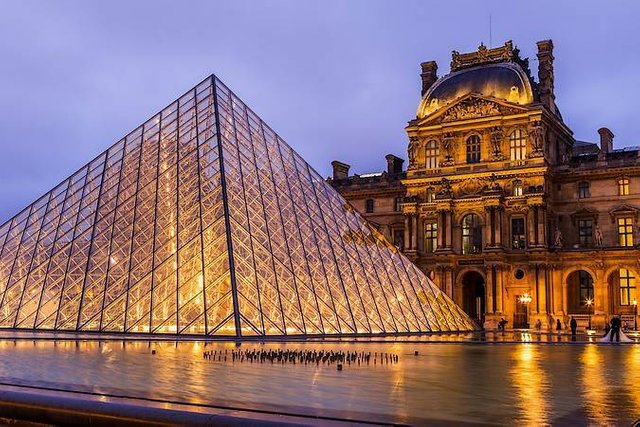The curious origin of the Museums
Since we have consciousness we have always heard and seen the Museums, but what was their origin?
In Greek mythology the word museion referred to the house of the muses, nine deities that according to the fable lived in the Parnassus directed by Apollo. All of them were sisters and personified the arts and sciences. So he had to:
- Calliope, referring to Epic Poetry,
- Clío, referring to History,
- Erato, referring to Lyric Poetry,
- Euterpe, referring to Music,
- Melpomene, referring to the tragedy,
- Polyimnia, referring to Pantomime,
- Talía, referring to the Comedy,
- Terpsícore, referring to Dance and
- Urania, referring to Astronomy.
Its main raison d'etre was the protection of the aforementioned arts and inspiration to the artists.
Already in the year 1791, in full French Revolution, France formally declared that the Louvre Palace, the Tuileries Palace (now disappeared) and the Cabinet of Natural History as property of the nation and not belonging to the Monarchy. It was debated which name would be chosen for them and they decided to denominate Museums, in honor to the Museum of Alejandria, since it was tried to continue the work that several centuries ago had realized the Ptolemaic dynasty in Egypt. This museum was a long building with galleries to walk, rooms to talk about literature and rooms to meet.

Image source: 101Travel
From this moment Museum was defined as: "" a permanent institution, non-profit, at the service of society and open to the public, which acquires, preserves, studies, exhibits and disseminates the material and immaterial heritage of humanity with purposes of study education and recreation ", a concept that would be adopted some time later by ICOM (International Council of Museums)
Interesting truth ???
Desde que tenemos conciencia siempre hemos oído y vistos los Museos, pero cual fue su origen??
En la mitología griega la palabra museion se refería a la casa de las musas, nueve deidades que según la fábula habitaban en el Parnaso dirigidas por Apolo. Todas ellas eran hermanas y personificaban las artes y las ciencias. Así se tenia a:
- Calíope, referente a la Poesía Épica,
- Clío, referente a la Historia,
- Erato, referente a la Poesía Lírica,
- Euterpe, referente a la Música,
- Melpómene, referente a la Tragedia,
- Polimnia, referente a la Pantomima,
- Talía , referente a la Comedia,
- Terpsícore , referente a la Danza y
- Urania , referente a la Astronomía.
Su principal razón de ser era la protección de las artes mencionadas y la inspiración a los artistas.
Ya en el año 1791, en plena Revolución Francesa, Francia declaró formalmente que el Palacio del Louvre, el Palacio de las Tullerías (hoy desaparecido) y el Gabinete de Historia Natural como propiedad de la nación y no pertenecientes a la Monarquia. Se debatió que nombre se escogería para ellos y decidieron denominaros Museos, en honor al Museo de Alejandria, ya que se pretendía continuar la labor que varios siglos atrás había realizado la dinastía Ptolemaica en Egipto. Este museo era un largo edificio con galerías para caminar, habitaciones para conversar sobre literatura y salas donde reunirse.
A partir de este momento se definió Museo como: " “una institución permanente, sin fines de lucro, al servicio de la sociedad y abierta al público, que adquiere, conserva, estudia, expone y difunde el patrimonio material e inmaterial de la humanidad con fines de estudio educación y recreo”, concepto que adoptaría tiempo después el ICOM (Consejo Internacional de Museos)
Interesante verdad???